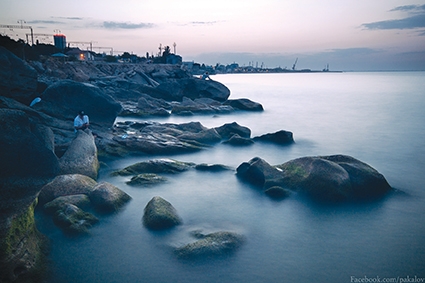Georgia & the Trans-Caspian Pipeline
Op-Ed
The Caspian region is important as it possesses huge amounts of unexplored oil and gas. The territory is also important the South Caucasus as it, through Azerbaijan, adjoins the Caspian Sea itself. For geopolitical reasons, cooperation on maritime issues in the Caspian basin would logically free up potential to build the Trans-Caspian Pipeline (TCP), which would go from Turkmenistan to Azerbaijan and then to Georgia onwards. Georgia could become host to yet another transnational project. Therefore, it is important the Georgian policymakers pay closer attention to the developments in this hydrocarbon-rich waters. But is it as easy as it seems?
Last week, following a meeting of foreign ministers from the Caspian Sea littoral states (Kazakhstan, Russia, Iran, Turkmenistan, Azerbaijan), the Russian Foreign Minister Sergei Lavrov unexpectedly said after more than 20 years of talks, an agreement on the legal status of the Caspian was "practically ready" for signing. Lavrov’s statement was the last in a series of high ranking officials’ sayings over a year or so that the agreement on the Caspian was coming to fruition.
The basics of the ruling misunderstanding between the five Caspian states has been the issue as to whether the Caspian is a sea or a lake. The designation matters since, if the Caspian is designated a lake, an entirely new approach will have to be taken. The so called "condominium" approach would divide the Caspian wealth equally (20% each) among the five littoral states.
However, such a designation and division of the Caspian waters is detrimental to Kazakhstan. The country currently has the largest sector of the Caspian Sea and so far the largest amount of oil and natural gas.
Iran, which has the smallest section on the Caspian, would reap largest benefits from a “condominium” division of the Caspian Sea. The country has just about 13% of the Caspian and so far it seems that Iran’s section has the least amount of oil and gas. The “Iranian section” also has the highest salt content in the water. This creates additional problems as the extrication of oil and gas would require more expensive technology to work with.
If the Caspian is designated a sea, all the littoral countries will be able to exploit the sea resources on separate agreements with one another, as Kazakhstan has so far done with Russia. Yet this could also cause problems as there are numerous oil and gas sites which cause disagreements between the Caspian states. Nevertheless, the designation of the Caspian as a sea would benefit Iran, again because of its small portion, and will allow the country to have up to 20% of the Caspian seabed.
A Bit of Geopolitics
The contentious nature of the Caspian problem is also rooted in the regional geopolitics. Russia, and perhaps even Iran, have been against allowing large amounts of oil and gas from Turkmenistan to be shipped to Europe. Moscow considers Europe its own near-monopoly market, while Iran aspires to get a share of it. The Turkmen gas/oil through the Caspian Sea and the South Caucasus would quite naturally cause their fears.
Thus, it quite naturally brings to question why Russia has been so eager to push the agreement on the Caspian. The details are as yet unclear and if there is a real agreement, then Russia might have already had Turkmenistan agree to something else instead of trying to ship its gas to Europe via the Caspian Sea and the South Caucasus. Indeed, there were some hints that Russia and Turkmenistan began working on gas exploration, cemented by the two countries’ seeming rapprochement in relations after Putin’s visit to Ashgabat this summer.
Moscow could have offered alternative routes to Ashgabat, such as Russian pipelines for transporting gas/oil to Europe. In fact, Turkmenistan could think that, in light of the economic problems it has been experiencing, it would be much more beneficial to use an already existent pipeline network rather than wait years for the TCP to be built.
Apart from that, Russia has also increased its military capabilities in the Caspian. Russia bombed Syria from its ships located in the Caspian Sea, and this, too, could be a tool for Russia to forestall any infrastructure projects disadvantageous to itself.
Still, while there are more questions than answers at present, they nevertheless require thorough thought and analysis on the part of the Georgian government.
Emil Avdaliani












